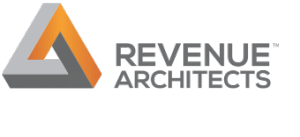
Face it. Most of the sales methodologies from the 80’s are tired. They do not address what growth companies need today. Growth companies need to shift from using a sales methodology to using a revenue methodology.
What are Sales Methodologies?
Sales methodologies offer a set of skills, tools, frameworks and techniques that help salespeople engage buyers across the phases of the sales process. A sales process is the sequence of steps and stages a company uses, but a sales methodology applies a set of principles and best practices that sellers will apply throughout the process. A sales methodology works with the sales process to provide skills and techniques for more effective selling.
Sales methodology practices help sales teams improve selling results and, together with process, adopt a more repeatable, scalable and predictable sales operating model. Every sales organization should use a methodology to execute good selling.
Some of the methodologies you might out there (including our own) are:
- Conceptual Selling.
- Corporate Visions
- Customer Centric Selling®
- Double Digit Sales
- Holden
- Inbound Selling
- Integrity Solutions LLC
- Janek Performance Group, Inc.
- MEDDIC
- Mercuri International
- Miller Heiman Group
- N.E.A.T. Selling
- Performance Methods, Inc.
- Revenue Architecture
- Sales Performance International
- Sandler Selling System
- SNAP Selling
- Solution Selling
- SPIN Selling
- Target Account Selling
- The Challenger Sale.
- Value Selling Framework.
What is wrong with “old school” sales methodologies?
Four things:
- They don’t include Marketing
- They don’t sufficiently leverage technology
- They don’t adapt well to different business archetypes
- They have too many steps, tactics and ideas to remember.
Sales Methodology should be Revenue Methodology
When many of the ‘tired’ methodologies were developed, there was no Internet. The entire selling cycle was driven by the salesperson. The seller did the prospecting, nurturing, opportunity management and close. When I started at IBM, I was given 12 zip codes and a phone book!
Today, buyers are more self-directed. They use the web throughout the buying process. Sales Marketing and Service all play a role. A “sales methodology” doesn’t work as well when it only deals with one portion of the buyer experience. Today we need a methodology that orchestrates buyer experiences across the buyer’s process and from the buyer’s point of view.
Technology is Playing a Bigger Role in the Sales Revenue Methodology
Old school methodologies are trying to add-on sales tech into their methods, but these add ons typically don’t work will with core CRM. The modern revenue methodology needs to work with a variety of tech stack components including marketing automation, CRM and data management and provide real-time “life-of-the-lead” insights, intent data and collaboration tools to help with responsive selling.
It is Not One Size Fits All. Different Business Archetypes Need Different Methodologies
Consider the continuum of businesses below from consulting (more expert based selling) to product (more process-based selling). Imagine how different the sales and marketing styles and methods need to be? Methodologies need to be adapted and tailored to the specific business model.
- Strategy Consulting
- Implementation Consulting
- Service-led Solutions
- Product-led Solutions
- Complex Products
- Standard Products
Methodologies Can Be Cumbersome
How many checklists and frameworks can a sales professional use? It is great to have templates and tools for planning strategy and account management, but when you’re in the thick of it and actively engaging with people in the buy-sell process, the tools and techniques you use must be ingrained in the “DNA” of the sales team and ready to use. Long checklists and frameworks don’t work. Tools like BANT qualification are popular for this reason. We actually recommend a different simplified approach – FACT – which takes a more collaborative approach to deal discovery and qualification. In general, we favor ‘lite’ methodologies that are easy to use.
Principles for a Next Generation Methodology
When we designed Revenue Architecture, we set out to address the gaps we observed with clients as they used traditional methodologies and pursued customer acquisition strategies. We designed an integrated marketing, sales and service process that could be adapted and tailored to different the business archetypes.
Design Principles include:
- Closed-loop. An end-to-end approach delivers greater insight and reporting on what is working and not working across marketing and sales.
- Data-driven. By using intent, predictive and behavior data, you can better target segments and message prospective buyers.
- Responsive. The approach must be adaptive for different business models and archetypes from strategy consulting to standard product sales.
- Open. The approach should enable “plug & play” tools that work for the particular business.
- Common Language. The methodology should provide a common operating model and language across the company so people can work well together and participate in the process.
- Alignment. Buyer engagement is more effective and responsive when marketing and sales teams are orchestrating the sales process and buyer experience.
Learn more about Revenue Architecture Methodology and Training



